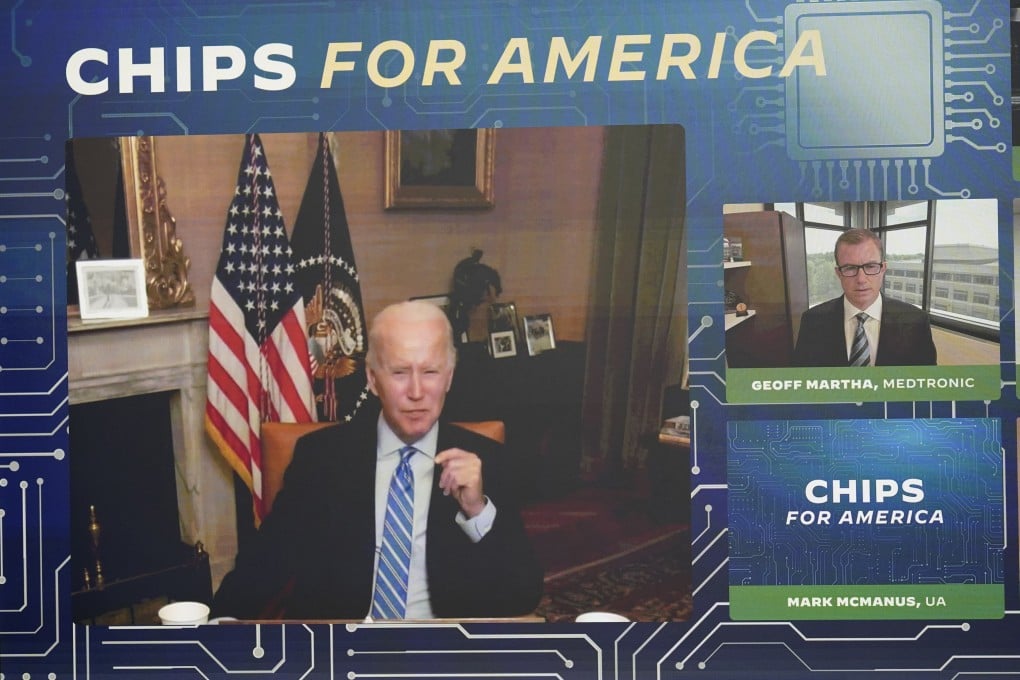US Senate passes bill providing US$52 billion in subsidies to semiconductor industry
- Approved 64 to 33 in a display of bipartisan support, legislation moves to the House of Representatives for a vote
- The bill has been framed as essential to the US competition with China, and includes potentially tens of billions of dollars more for science and tech spending

The US Senate approved billions of dollars in new federal funding for the American semiconductor industry on Wednesday, advancing a top priority for Washington’s efforts to out-compete China.
“Today, by approving one of the largest investments in science, technology and manufacturing in decades – in decades – we say that America’s best years are yet to come,” Senator Charles Schumer, the Senate majority leader and an original sponsor of the bill, said before the vote.
“If we didn’t get there first, our rivals, chief among them the Chinese Communist Party, would likely beat us to the punch and reshape the world in their authoritarian image,” Schumer, a Democrat from New York, said. “Frightening prospect.”
The legislation, which has gone by many names and wound up being known as the Chips and Science Act, passed the Senate by a bipartisan vote of 64 to 33, the latest sign that both Democrats and Republicans regard competition with China as an urgent issue that must be addressed – even if they don’t always agree on what to do about it.

The bill now heads to the House of Representatives for a vote. If the House passes it and US President Joe Biden signs it into law, the US semiconductor industry would receive a windfall of more than $52 billion – a huge boost to a sector vital to everything from military weapons to cars to video games.